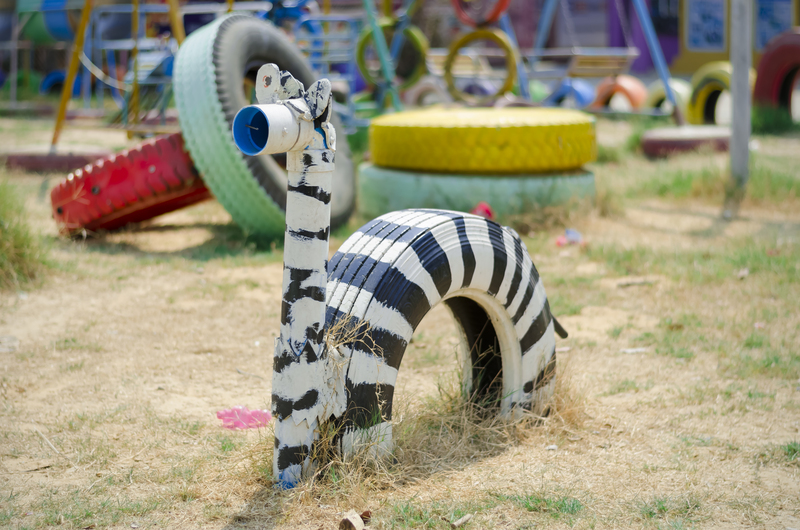Score a Smooth Skip Hire Experience: Dos and Don'ts
Are you planning a renovation, landscaping project, or a big clean-up? Efficient waste removal is crucial for keeping things on track. This is where hiring a skip can save you time and effort. However, if you've never rented a skip before, the process can seem overwhelming. In this comprehensive guide, we'll share the essential dos and don'ts to help you score a smooth skip hire experience. Learn the best practices, avoid costly mistakes, and ensure your waste disposal runs trouble-free from start to finish.
Understanding Skip Hire: What Is It and Why Use It?
Before diving into the practical dos and don'ts, let's define what skip hire is all about. Skip hire is the process of renting a large, open-topped container (skip) for waste removal. Whether you're tackling a home extension, garden overhaul, or just getting rid of clutter, skip bin rental provides a convenient way to contain and dispose of unwanted materials. Your chosen skip company then collects the filled skip and handles responsible waste disposal, making life easier for you.
Why Should You Use a Skip Hire Service?
- Efficiency: Skip hire streamlines removal of large volumes of waste.
- Safety: Reduces hazards from scattered debris on-site.
- Eco-friendly: Professional companies recycle and safely dispose of your rubbish.
- Convenience: No more endless trips to the local tip!

The Dos: Steps to Ensure an Effortless Skip Hire Experience
To maximise the benefits of skip bin rental, there are key best practices to follow. Here's a detailed look at the steps you should take for a smooth and stress-free skip rental.
1. Research Reputable Skip Hire Companies
- Compare Prices: Obtain multiple quotes to get the best value.
- Read Reviews: Check client feedback for reliability and service standards.
- Verify Credentials: Make sure the company is fully licensed and insured to handle waste disposal.
Spending a little time at this stage ensures you hire a reliable provider, lessening the chances of unexpected hiccups down the line.
2. Select the Right Skip Size
- Assess your waste: Estimate volume using online calculators or by consulting with the hire company.
- Choose a slightly larger size if unsure: Overfilling a skip can result in extra charges and collection refusals.
- Popular Sizes: Mini (2-3 yard), Midi (4-5 yard), Builder (6-8 yard), Maxi (10-12 yard), and Roll-on Roll-off for commercial projects.
Picking the right size is a top tip for a smooth skip hire experience. Avoid the temptation to save a few pounds -- you don't want to run out of space mid-project!
3. Plan Skip Placement Wisely
- Private property preference: Placing the skip on your drive or within property lines avoids needing extra permits.
- Public land (street/verge): Secure a skip permit from your local council if not on private land. Your skip supplier can often handle this for a fee.
- Allow easy access: Ensure there's enough clearance for delivery trucks and that skip location is safe for loading.
Attention to placement can prevent headaches such as permit issues, blocked access, and neighbour complaints.
4. Understand What You Can and Cannot Put in Your Skip
- General waste and non-hazardous materials are usually accepted.
- Commonly prohibited items include:
- Asbestos
- Batteries
- Electrical appliances (WEEE items)
- Paints and solvents
- Gas cylinders
- Tyres
- Medical waste
When in doubt, always ask your skip rental provider. Dumping restricted items can lead to extra charges or environmental fines. Most skip companies will provide a clear list of allowed and restricted materials.
5. Load Your Skip Efficiently
- Break up bulky items and flatten boxes to maximise space.
- Distribute weight evenly -- heavy items at the bottom, lighter ones on top.
- Do not fill above the skip's rim. Overfilling is unsafe and likely illegal, meaning collection will be refused.
Avoiding overfill keeps your site safe, ensures smooth pick-up, and helps you score an optimal skip hire outcome.
6. Arrange Flexible Delivery and Collection
- Book in advance: Especially during busy seasons (e.g., spring, summer or public holidays).
- Agree collection date: Most companies allow you to specify a pick-up window, or you can request collection once the skip is full.
Good communication with your skip provider avoids last-minute surprises and helps your project stay on track.
7. Make Safety a Priority
- Use reflective markings or lights if the skip is placed in public areas.
- Keep walkways clear to avoid accidents.
- Secure hazardous materials separately (and inform your provider).
Safety isn't just about personal protection -- it keeps your neighbours and passerby safe too.
The Don'ts: Common Skip Hire Mistakes to Avoid
Now that we've covered the dos, what about the pitfalls? Avoid these common missteps for a seamless skip hire experience:
1. Don't Underestimate the Amount of Waste
- Booking a skip that's too small leads to mid-project disruption and higher costs.
- Rather than guessing, overestimate your waste or consult the pros.
Underestimating leads to wasted time and extra expenses--a major roadblock for any smooth skip hire experience.
2. Don't Ignore Permit Requirements
- Skipping the skip permit is a fast track to fines (and having the skip removed by authorities).
- Local councils are strict about waste container placement -- always handle the paperwork, or ask your provider to do it for you.
Not getting the required skip permits can halt your project and land you hefty penalties.
3. Don't Put Restricted Items in the Skip
- "Hazardous waste" is strictly regulated and must not go in a general skip bin.
- If in doubt, phone your skip hire company for guidance.
Remember: Your legal responsibility doesn't end when the skip is picked up.
4. Don't Block Access for Delivery and Collection
- Avoid parking vehicles or placing obstacles in front of the skip location.
- Ensure gates/doors are unlocked on delivery and collection days.
A blocked skip is a missed collection -- costing you time and possibly incurring extra fees.
5. Don't Ignore Local Waste Regulations
- Each council has different rules on placement, lighting, and length of skip stays.
- Failing to comply can annoy neighbours and lead to official complaints or fines.
Always check with your skip hire provider about the latest regulations in your local area.
6. Don't Overfill the Skip
- Skips must never be filled above the rim. It's dangerous and illegal. The skip company is under obligation to refuse collection.
- Extra disposal or travel charges may apply if a second skip is needed.
7. Don't Delay the Collection Booking
- Leaving a full skip for too long can result in overfilling, neighbours adding their own rubbish, or council dissatisfaction (especially if on public land).
- Arrange collection promptly once you're finished.
Prompt collection helps you wrap up your project and maintain good relations with your neighbours and local authorities.
Important Tips to Further Enhance Your Skip Hire Experience
- Check Weather Forecasts: Avoid booking skip delivery during very wet or stormy periods. Soft ground may not support heavy skips.
- Protect Your Drive: Place boards or old carpets under the skip to prevent damage to tarmac or paving stones.
- Use Skip Covers (if available): Prevent illegal dumping (fly-tipping) and keep out rainwater.
- Consider Timing: Plan the hire duration carefully. Most companies charge by the week; early pickup may save you money.
- Recycle What You Can: Where possible, separate recyclable items before disposal. Ask your provider about recycling policies and services.
Staying organised and proactive helps you achieve a slick, trouble-free skip hire.
FAQs on Achieving a Smooth Skip Hire Experience
Q: How long can I keep a rented skip?
A: Most skip hire companies provide skips for 1-2 weeks by default. Overruns may incur daily or weekly fees, so always clarify the terms during booking.
Q: What should I do if I need my skip for longer?
A: Speak with your provider as soon as possible. Many offer extensions for a fixed price, but always arrange this before your rental term ends to avoid surprise charges.
Q: Can skips be placed anywhere on my property?
A: Ideally, skips should be placed on hard, level ground with clear access for lorries. Avoid soft lawns, as heavy skips can cause damage -- especially when wet.
Q: Do I need to be present for delivery or pickup?
A: Typically, no, as long as the area is accessible and instructions are clear. However, it's wise to be contactable by phone in case the driver has any queries during arrival.
Q: Are there eco-friendly skip hire options?
A: Yes, many companies specialise in recycling and sustainable disposal. Ask about their recycling rates and what they do to minimise landfill waste.

Your Checklist for a Seamless Skip Hire Experience
- ? Research and book your skip early with a reputable provider
- ? Estimate waste accurately and choose the right size
- ? Secure necessary skip permits if placing on public land
- ? Prepare your property and plan the perfect skip location
- ? Load efficiently and stay within fill limits
- ? Promptly book collection when finished
- ? Communicate clearly with your skip hire specialist
- ? Stay eco-conscious and recycle wherever possible
By sticking to these rules of thumb, you'll breeze through your next skip hire without stress, hidden costs, or regulatory headaches.
Conclusion: Enjoy Hassle-Free Skip Hire Every Time
Whether you're a DIY renovator, gardener, landlord, or business owner, scoring a smooth skip hire experience boils down to preparation, communication, and compliance with waste management best practices. Avoid the common mistakes, stick to the dos and don'ts above, and your skip rental will make clearing out rubbish safer, simpler, and much more efficient.
Ready to get started? Research your local skip providers today, and remember: an organised skip hire is a stress-free one!